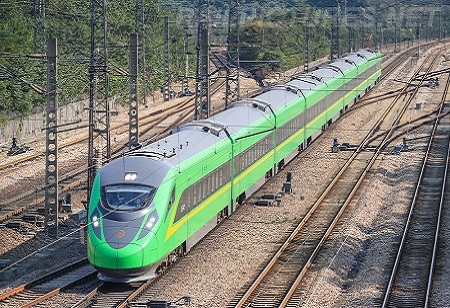
Nigeria's Senate Nods New Chinese Bank For Rail Project

 After the withdrawal of another Chinese lender from the project in 2020, the Nigerian Senate has authorised China Development Bank as the new funder for the country's $973 million Kaduna to Kano rail project, according to legislators.
After the withdrawal of another Chinese lender from the project in 2020, the Nigerian Senate has authorised China Development Bank as the new funder for the country's $973 million Kaduna to Kano rail project, according to legislators.
Before the bank withdrew, Parliament had approved China's Exim Bank to provide financing for the rail project, which was included in the government's intention to borrow $22.8 billion from abroad.
The new financier, who will provide a 15-year loan to the rail project at an interest rate of 2.7%, has also received approval from Nigeria's lower house of parliament.
In order to reduce reliance on diminishing crude oil earnings, President Muhammadu Buhari made modernising Nigeria's transportation infrastructure and ageing electricity grids the cornerstone of his administration. Yet a significant barrier has been money.
Many billions of dollars in project-related loans from Chinese and other foreign lenders have been approved by Nigeria's parliament; however, the money has not yet arrived.
After delays from Chinese lenders, Nigeria turned to Standard Chartered Bank in 2022 for a loan to construct the Kano-to-Maradi line, which will connect the northern states of Kano, Jigawa, and Katsina. Yet in order to secure money, the government has now turned to China.
In Africa's largest economy, Nigeria, where 40% of the population lives below the national poverty line, weak transport and electrical infrastructure has long hindered economic growth.
President-elect Bola Tinubu, who has pledged to address a slew of issues, including double-digit inflation and industrial-scale oil theft that have slowed an economy struggling to recover from the COVID-19 pandemic, will take office in May when Buhari leaves office.

